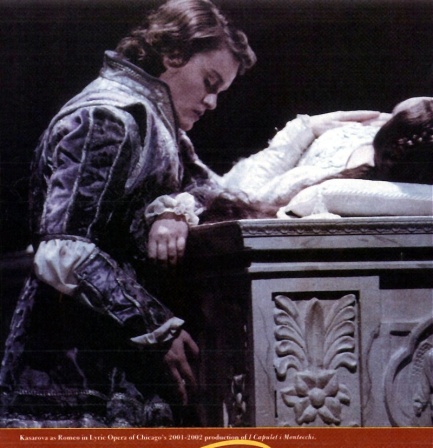
well, this capuleti was the first one i owned before the dresden, the cd recording, the Liege performance, etc. For over a couple of months, I listened to it quite a bit on repeat (way back, nearly 2 years ago). And the more i listened, the more i got irritated, finally to a point I quit it altogether! As is generally the case, after listening to snippets of your (my) “perfect” version, everything else got compared, dissected, analyzed down to the sweat pores. But! since i do claim am open minded (it’s really true!), I really do enjoy each performance on its own ground… Yet it took me 2 years to finally got back to this recording again this past week. Why now? methinks I’ve finally saturated my “perfect” performance version, not in term of getting tired of listening to it, but rather to a point that I’m now interested in other versions to enjoy the differences, the spontaneity, the unknowns, the dynamics of a live performance.
There are many things I love about this radio broadcast. Particularly the very nice descriptions of the scenes and set by the host, as well as the richness of knowledge on the history of the opera itself as offered by Dr. Philip Gossett during intermission. I like also the chorus, the tempo, the Romeo…

Anyhow, here’s the performance in its entirety. I always enjoy them this way, uncut, just so you can form your own feeling. It’s actually fun listening to the tuning at the beginning, almost gives you the impression it’s live (when the goosebumps building up 🙂 ). If you do finish listen to the whole thing, I’d love to chit chat in the comment box below about how we like it.
October 2001 radio broadcast
Bellini’s I Capuleti e i Montecchi
Tebaldo tenor, FABIO SARTORI
Capellio bass-bar., JEFFREY WELLS
Lorenzo bass, UMBERTO CHIUMMO
Romeo mezzo, VESSELINA KASAROVA
Giulietta soprano, ANDREA ROST
Conducted by BRUNO CAMPANELLA
Lyric Opera of Chicago
“When singing Bellini music, loud is not dramatic, expressiveness is dramatic.” — Vesselina Kasarova
Playlist.
Introduction
Act 1 Scene 1a (overture, opening chorus, Tebaldo)
Act 1 Scene 1b (Romeo’s entrance aria)
Act 1 Scene 2a (Giulietta’s entrance aria)
Act 2 Scene 2b (Romeo & Giulietta duet)
Act 1 Scene 3 (quintet)
Intermission — Philip Gossett’s intro to history of the opera
Act 2 Scene 1 (Giulietta)
Act 2 Scene 2 (duet Romeo & Tebaldo)
Act 2 Scene 3 (Tomb scene)

Leave a reply to Eyesometric Cancel reply